AR RAKEEZ, West Bank — Mohammad Abu Aram wept as he knelt in front of a pool of his son’s blood that had seeped into the dirt track.
A Palestinian flag marked the spot where the father of seven says his son Haron, 25, was shot by Israeli soldiers as they tried to confiscate a generator from this remote hamlet in the occupied West Bank on New Year’s Day.
“My darling son, God help you. What happened to us?” Abu Aram said to himself as he accompanied NBC News a few days later to the scene of the shooting, which left his eldest son paralyzed.
As Haron languishes in a hospital, a question continues to plague his father: What could he have done to protect the young farmer?
In a series of interviews in the months following Haron’s shooting, Abu Aram, who at 51 has white stubble and is missing a few teeth, and his wife, Faresah, 47, detailed the growing pressures of the Israeli occupation on his family.
“Our lives are becoming more and more difficult since he’s been shot,” he said this week. “I’m not working at all, I’m at the hospital all day long every day with him.”
Disputing accounts
Just days after the shooting on Jan. 4, the Israeli Defense Forces said its troops were trying to confiscate and evacuate an “illegal building” in the nearby village of At-Tuwani, south of Hebron, on Jan. 1 when they were attacked by Palestinians. One Palestinian, the statement said, was injured by live fire.
Haron’s family disputes that account and says the young man was defending his neighbors’ right to own a generator. Their neighbors had complied with an Israeli order to stop building an agricultural shed, Abu Aram said, but they needed the generator to power their home.
Human rights groups say the shooting is another example of the “excessive” use of force deployed by Israel’s military against Palestinians in the occupied territories. It is also indicative, they say, of how Israel uses planning and construction, among other tools, to make life miserable for Palestinians living in this part of the West Bank.
“It’s trying to make life impossible for these people so that they leave, as if by their own choice,” Amit Gilutz, a spokesperson for the Israeli group B’Tselem, which works to end the occupation, said, referring to Palestinian agricultural communities, like Ar Rakeez, in Area C of the West Bank.
Israel retains near-exclusive control — including over law enforcement, planning and construction — in Area C, which represents around 60 percent of the West Bank. Around 2.7 million Palestinians live in the West Bank, and around 440,000 Jewish settlers, according to Peace Now, a group that advocates for a Palestinian state.
The IDF said a military police investigation had been opened into the shooting, and that the findings would be submitted to the Military Advocate General’s Corps.
Download the NBC News app for breaking news and politics
The Israeli Civil Administration, the branch of the military dealing with civilian affairs in the West Bank, directed questions on the incident, and allegations that Israel uses planning and construction to put pressure on Palestinians living in this part of the West Bank, to the IDF spokesperson.
The IDF spokesperson redirected the request for comment on the planning and construction allegation back to the civil administration.
‘Chronic uncertainty and threat’
Abu Aram says his family has been living in a dark, dank cave since the Israeli army demolished their house last year. The Israeli Civil Administration did not confirm that their house had been demolished, but NBC News has visited the cave where the family lives.
In Area C, construction by Palestinians is rarely permitted, rights groups say, and structures without permits are regularly ordered to be demolished, “creating chronic uncertainty and threat, and encouraging people to leave,” according to the United Nations Office for the Coordination of Humanitarian Affairs.
“Most of Area C has been allocated for the benefit of Israeli settlements or the Israeli military, at the expense of Palestinian communities,” the U.N. office’s website says.
In 2020, when the coronavirus pandemic was wreaking havoc across the globe, Israel ramped up demolitions of Palestinian homes in the West Bank, while so far this year it has advanced plans to build nearly 800 housing units in Jewish settlements in Area C of the West Bank and issued tenders for around 2,000 more, according to B’Tselem and Peace Now.
Palestinians seek the West Bank, territory captured by Israel from Jordan in 1967, for a future independent state. They, along with most of the international community, consider Israeli settlements there to be illegal and an impediment to peace.
“Our father told us to protect our homes,” Abu Aram said, recalling his father’s advice on how to deal peacefully with the “enemy.”
“My father never told me that one day they would shoot my son,” he added.
‘Mortal threats’
Haron had woken Jan. 1 in a good mood, his family recalled. He was hospitalized just a few hours later, a bullet having passed through his neck and out his skull, according to his father.
The young farmer had been trying to pull back the generator from the soldiers’ hands when the shot was fired, Abu Aram said.
The Israeli military said in the Jan. 4 statement that when border police and troops were in At-Tuwani on Jan. 1, around 150 Palestinians instigated a “violent riot” and hurled rocks at them.
In a follow-up statement Jan. 12, it said an inquiry had found that “it appears” the troops faced “mortal threats” while in the area, prompting a military commander to fire warning shots into the air. Palestinians then attacked him, causing a stray round to strike a Palestinian who was part of the riot, it added.
NBC News has viewed a video shot by a local boy that appears to show around four men confronting a group of soldiers over a generator in Ar Rakeez. At one point, a hand-to-hand struggle ensues, and a gunshot can be heard before Haron is shown lying in the dirt.
B’Tselem says Israeli investigations into similar incidents have served to whitewash offenses and are mostly closed with no further action.
Haron, who has woken up from a coma, can make sounds but is paralyzed from the neck down, his mother, Faresah, said recently.
But Abu Aram said this week that Haron’s condition has worsened and that he has been drifting in and out of consciousness.To make matters worse, he said, the young man’s fiancée left him after the shooting.
“During the past couple of months, I tried to help him to accept the fact that he’s paralyzed but I wasn’t successful. He can’t accept the fact that his fiancée has left him,” the distraught father said.
Hot spot
Haron’s shooting and the demolition of the home are perhaps the most visible examples of the persistent pressure the family says it endures in the hills south of Hebron. However, his parents also say Israeli settlers in the West Bank have regularly harassed their family.
Rights groups say the hills south of Hebron are a hot spot for settler violence and that attacks against Palestinians are used as an unofficial tool by Israel to drive Palestinians away.
Elnatan Scharia, a spokesman for the Yesha Council, an umbrella organization that represents Jewish settlements in the West Bank, said that the council opposes all violence against any person and that violence in the area was coming from Palestinians.
Palestinians are regularly accused of violence toward settlers in the West Bank, ranging from stone-throwing to stabbings. But rights groups say when this happens, the military often takes action, while they often turn a blind eye to settler violence.
The Israeli military said security agents operate in the West Bank to maintain security and enforce the law in relation to all populations, and that they work to prevent legal violations by Israelis against Palestinians. The Israeli police said it conducts investigations when complaints are received about offenses of disorderly conduct and violence.
Meanwhile, ifs and regrets plague Abu Aram.
“I couldn’t protect my house from being demolished, and I disappointed my children,” he said, adding: “I want my son to come back to me.”
Lawahez Jabari reported from the West Bank; Saphora Smith reported from London.

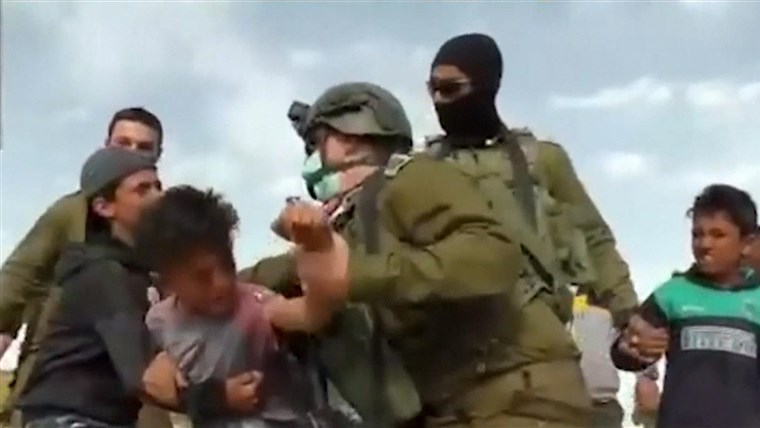
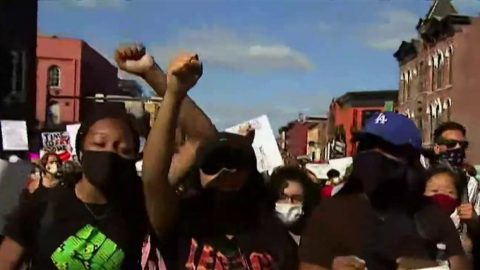
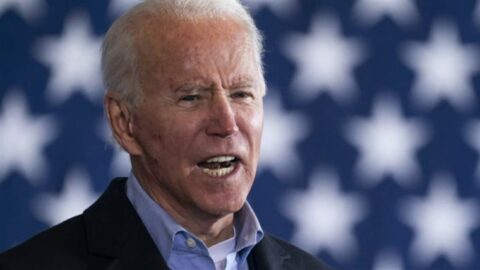
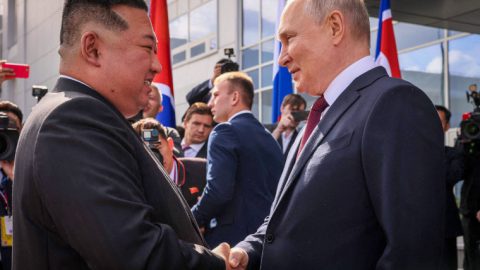
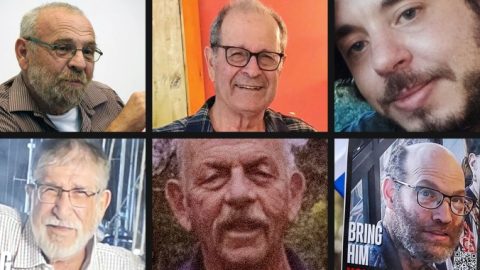
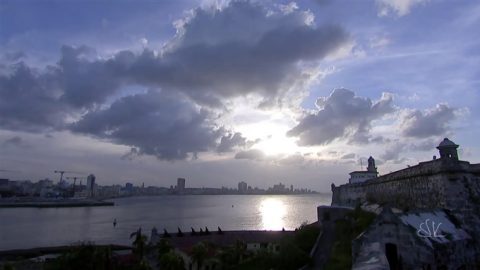
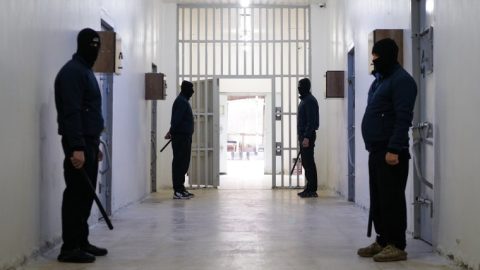
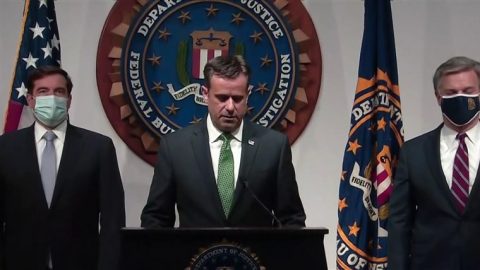
Recent Comments